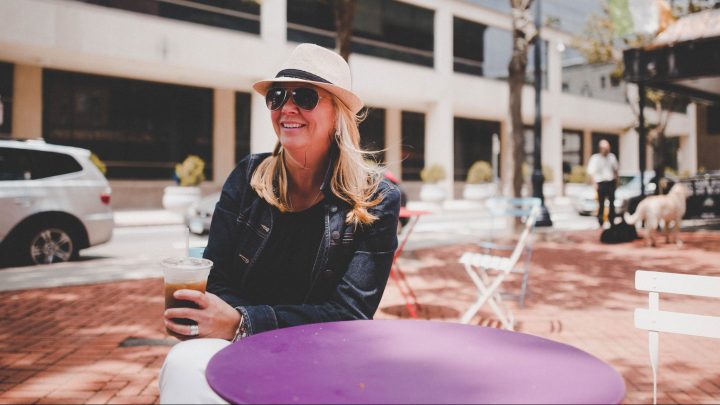
Why this small business said goodbye to the office for good
Why this small business said goodbye to the office for good

Like many workplaces, Response Marketing in New Haven, Connecticut, went fully remote due to the coronavirus pandemic. One year later, the marketing and advertising agency has given up its office space for good.
“Just this week, we moved the last of our stuff out of the office,” said Carolyn Walker, Response’s CEO and managing partner. “And I’m not planning to go back into a physical space.”
“Marketplace” host Kai Ryssdal spoke with Walker about the challenges of advertising during a pandemic and why she chose to close her company’s office space permanently. The following is an edited transcript of their conversation.
Kai Ryssdal: So, big picture-ish, how’s the advertising business going these days?
Carolyn Walker: You know, it hasn’t been an easy year for anyone, but you know some, some have fared better than others. Some of our clients took a really hard hit at the beginning and are starting to climb out and other clients actually surged.
Ryssdal: Gimme a for instance on the ones who had a tough time and had to figure out their way through this with, obviously, your help.
Walker: Yeah. So one of our clients is Uncle Julio’s Restaurant Group. They’re polished casual dining restaurants across the country. And so, as you can imagine, when the pandemic hit, they went from, you know, millions of dollars in sales every week to basically nothing, and so that hit them hard and hit us hard.
Ryssdal: Well, so, but look, I mean, with all respect to your expertise over however many decades in this business, but there is not an advertising company in the world that can help a restaurant when nobody wants to go out to eat.
Walker: Yeah, it wasn’t easy. Basically what we did is we made a big switch in the strategy from, you know, using mass-media tactics like television and radio and moved to lean into their owned media channels, like their website and social media and their email list. And basically, you know, let people know that they were still operating and available for takeout and delivery and things like that.
Ryssdal: So how did Uncle Julio’s do, coming through this past year?
Walker: So it’s been really interesting. One of the success stories is, they had the brilliant idea of starting a virtual brand they called Savage Burrito. And so we helped them develop, name, launch Savage Burrito, that is basically serviced out of their Uncle Julio’s kitchens across the country.
Ryssdal: All right, so as your clients are changing, I imagine you were having to shift some gears as well. Tell me about running your own marketing business in a pandemic.
Walker: Yeah, it’s, it hasn’t been easy. When it first happened, you know, budgets were cut pretty dramatically, our billings dropped by about 50%. We applied for [an Economic Injury Disaster Loan] and got it in April. We applied for a [Paycheck Protection Program loan], which also wasn’t easy, but we got that in May. We did end up laying off four people, but we were able to bring two of those four back, and we basically went to a totally remote situation. We were already working from home on Fridays anyway, and we just went 100% virtual.
Ryssdal: Yeah, I’ve been thinking a lot lately about the whole getting-back-to-the-office thing and how that’s looking increasingly like it’s not going to be the way it was. What are you going to do when and if y’all can go back to the office? Are you gonna?
Walker: Yeah. So, no, we’re not gonna. So it’s really interesting, just this week, we moved the last of our stuff out of the office. And I’m not planning to go back into a physical space.
Ryssdal: Wow. So that’s gonna save you a ton of money. I mean, just to get down to brass tacks here, right? You don’t have to pay rent.
Walker: That’s right. We’re gonna save about $60,000 a year.
Ryssdal: And if you need to get together, you can just do like a WeWork or some kind of co-working space, right?
Walker: Yeah, that’s right. So we use Regus [a firm that provides co-working space] quite a bit, so we have their space, and we’re also members of the 4A’s. It’s an advertising association in Manhattan, and they have, actually, lots of space right now. I mean, honestly, we’re so small, we can just meet in a coffee shop.
Ryssdal: Totally. Any worries about continuing to run your own business in this post-pandemic era?
Walker: No, I feel really good about it. I feel like if I made it through this, we can make it through anything.
There’s a lot happening in the world. Through it all, Marketplace is here for you.
You rely on Marketplace to break down the world’s events and tell you how it affects you in a fact-based, approachable way. We rely on your financial support to keep making that possible.
Your donation today powers the independent journalism that you rely on. For just $5/month, you can help sustain Marketplace so we can keep reporting on the things that matter to you.












